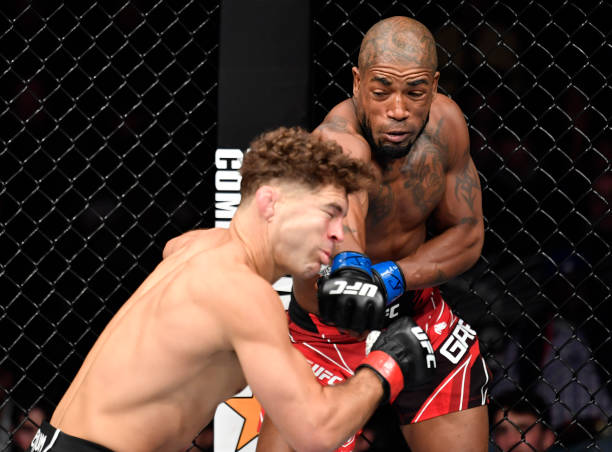Bobby Green’s Stunning Victory Ends Tony Ferguson’s 6
-Fight Losing Streak at UFC 29
In a remarkable turn of events at UFC 29, Bobby Green managed to break his opponent Tony Ferguson’s 6-fight losing streak in a highly anticipated matchup. The bout, held at a packed arena, showcased Green’s exceptional skills and determination as he secured an impressive submission victory over Ferguson. In this article, we delve into the legal aspects surrounding UFC 29, providing an analysis of the potential legal implications, contractual obligations, and the regulatory framework governing mixed martial arts (MMA) events.
The Regulatory Framework for MMA Events:
MMA events, including the UFC, operate under a specific regulatory framework to ensure safety, fair competition, and compliance with local laws. State athletic commissions or regulatory bodies oversee these events, imposing stringent rules and regulations for fighter safety, judging criteria, and drug testing protocols. These regulations aim to maintain the integrity of the sport while safeguarding the rights of fighters and promoters alike.
Fighter Contracts and Obligations:
Contracts form the backbone of the relationship between fighters and promotions like the UFC. A fighter’s contract may outline various aspects, including compensation, fight schedule, promotional commitments, and obligations regarding conduct and performance. When a fighter participates in a match, they are bound by the terms and conditions laid out in their contract, which may have legal consequences for breaching any agreed-upon terms.
Potential Legal Implications of Fight Outcomes:
While MMA is a combat sport, it is essential to recognize that fighters assume certain inherent risks when entering the cage. The outcome of a fight is not usually subject to legal scrutiny, as it is ultimately determined by the competitors’ skill and performance on the night of the event. Barring any evidence of misconduct, illegal actions, or contractual violations, the result of a match is generally regarded as a valid outcome.
Medical and Insurance Considerations:
Fighters’ safety is of paramount concern to the regulatory bodies and promoters. Adequate medical assessments, including pre-fight medical examinations, are usually mandatory to ensure fighters are physically fit to compete. Additionally, fighters often carry medical insurance provided by the promotion to cover injuries sustained during the fight or training camp.
Liability and Negligence:
In rare instances, disputes or legal claims may arise if a fighter can establish that their opponent or the promotion was negligent in ensuring their safety. Such cases require substantial evidence, and the burden of proof lies with the injured party to demonstrate negligence or a breach of duty of care. These situations are highly fact-specific and would be subject to legal analysis on a case-by-case basis.
Conclusion:
Bobby Green’s victory over Tony Ferguson at UFC 29 not only marked an end to Ferguson’s losing streak but also showcased the exhilarating nature of MMA competition. As with any professional sport, mixed martial arts operates within a well-defined regulatory framework and contractual agreements that govern the relationships between fighters, promotions, and regulatory bodies. Understanding the legal aspects of MMA events is vital to maintaining the integrity of the sport and ensuring the safety and rights of all participants.


